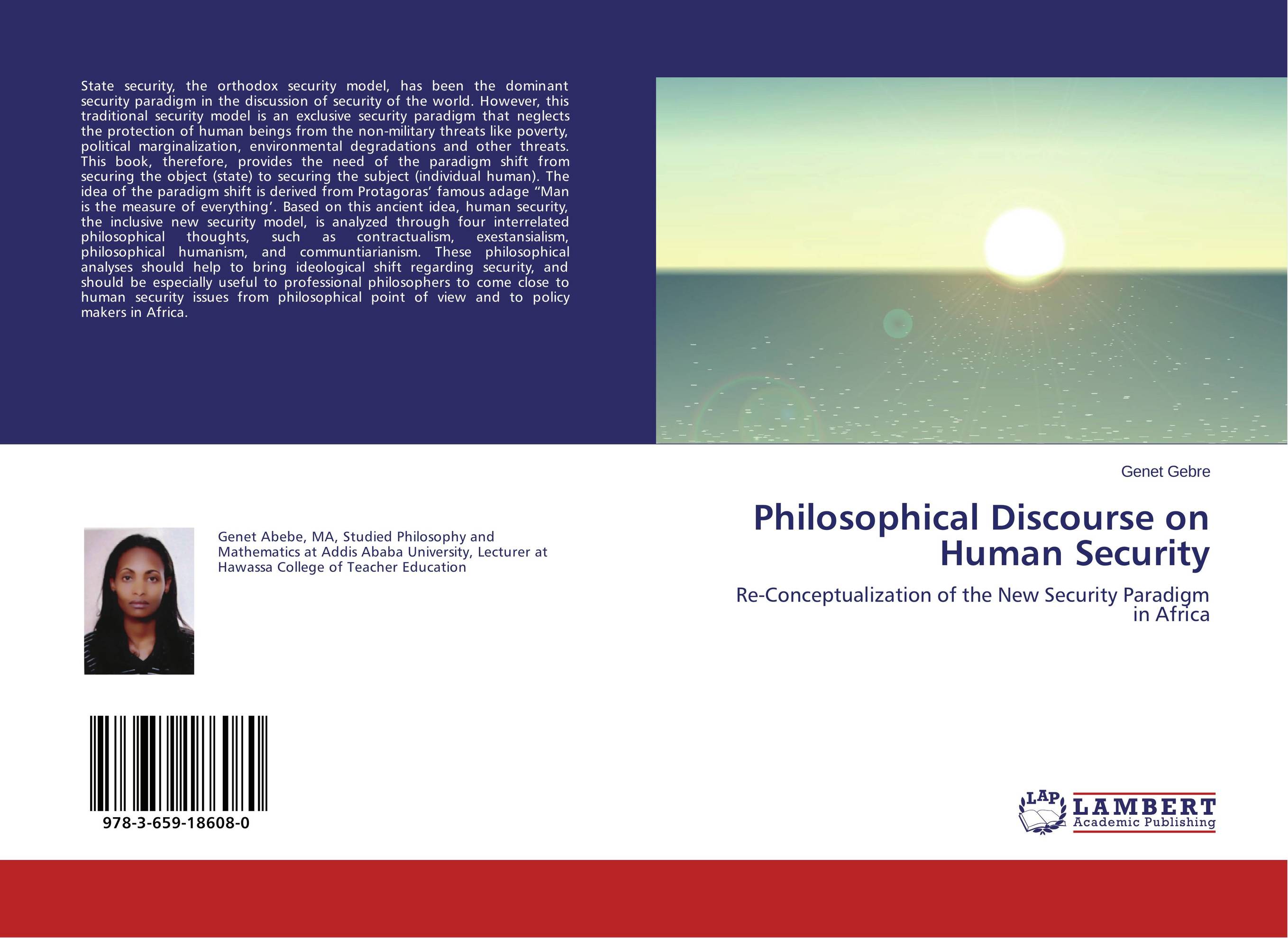| Поиск по каталогу |
|
(строгое соответствие)
|
- Профессиональная
- Научно-популярная
- Художественная
- Публицистика
- Детская
- Искусство
- Хобби, семья, дом
- Спорт
- Путеводители
- Блокноты, тетради, открытки
Philosophical Discourse on Human Security. Re-Conceptualization of the New Security Paradigm in Africa

В наличии
| Местонахождение: Алматы | Состояние экземпляра: новый |

Бумажная
версия
версия
Автор: Genet Gebre
ISBN: 9783659186080
Год издания: 2015
Формат книги: 60×90/16 (145×215 мм)
Количество страниц: 96
Издательство: LAP LAMBERT Academic Publishing
Цена: 31747 тг
Положить в корзину
| Способы доставки в город Алматы * комплектация (срок до отгрузки) не более 2 рабочих дней |
| Самовывоз из города Алматы (пункты самовывоза партнёра CDEK) |
| Курьерская доставка CDEK из города Москва |
| Доставка Почтой России из города Москва |
Аннотация: State security, the orthodox security model, has been the dominant security paradigm in the discussion of security of the world. However, this traditional security model is an exclusive security paradigm that neglects the protection of human beings from the non-military threats like poverty, political marginalization, environmental degradations and other threats. This book, therefore, provides the need of the paradigm shift from securing the object (state) to securing the subject (individual human). The idea of the paradigm shift is derived from Protagoras’ famous adage “Man is the measure of everything’. Based on this ancient idea, human security, the inclusive new security model, is analyzed through four interrelated philosophical thoughts, such as contractualism, exestansialism, philosophical humanism, and communtiarianism. These philosophical analyses should help to bring ideological shift regarding security, and should be especially useful to professional philosophers to come close to human security issues from philosophical point of view and to policy makers in Africa.
Ключевые слова: communitarianism, paradigm shift, post-Cold War Period, freedom from want, holistic security, human minimum, moralistic-view, perpetual peace, ‘securing security’, solidarism



